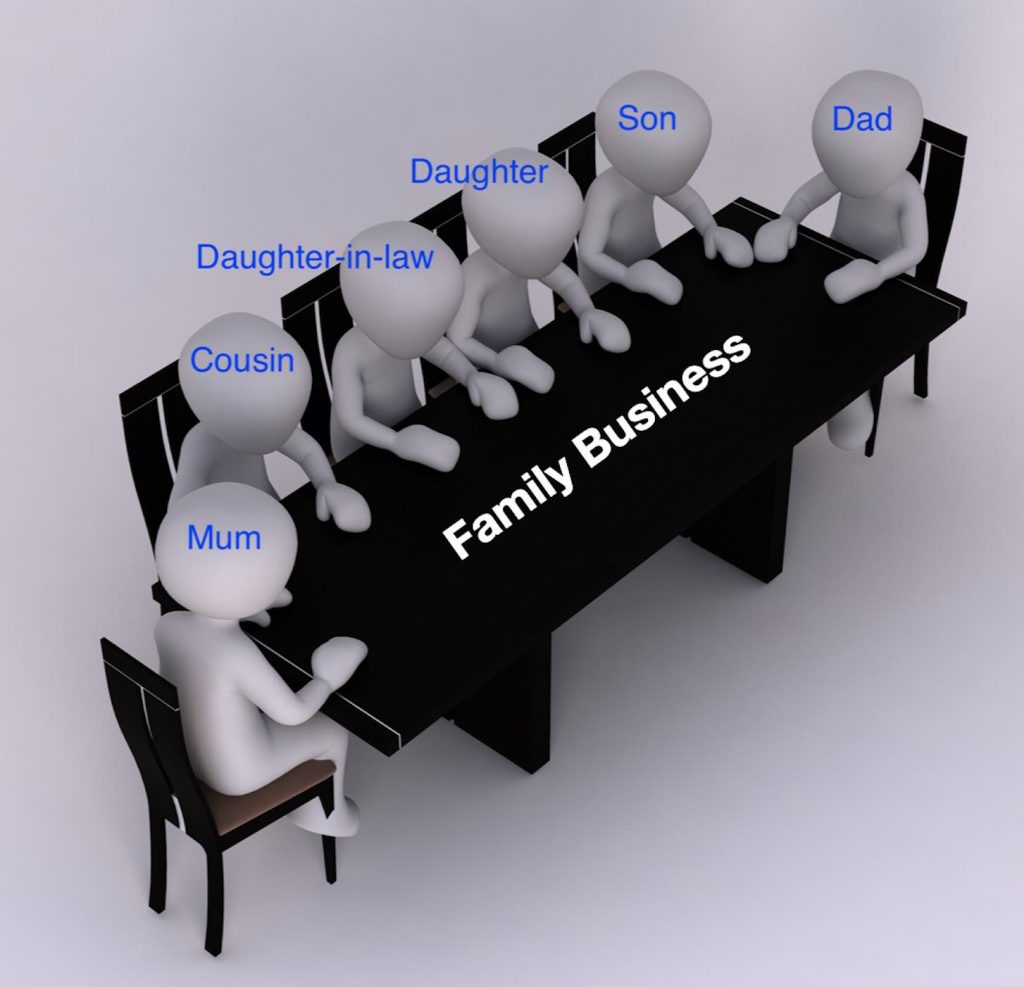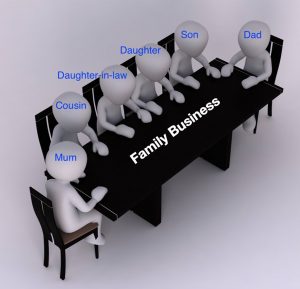How to structure family business for long term harmony and sustainability? The less formal nature of a family business can be both an advantage, and a drawback. This is most manifest in the area of ownership. While family members are – at first – less likely to complain about their allocation, it can lead to serious quarrels later. Here are a few things to factor in, when it comes to ownership:

1. Conditions for ownership must change over time
Family businesses tend to start equitable. For example, a business started by both siblings, or by parents and children, tend to involve a roughly equal (or accepted) distribution of work. As such, equal ownership seems fair at the beginning.
There may be problems with later generations, however, in which family members show differing levels of interest. Consider, for instance, if your child wants to pursue a career outside the family business after graduation. She may work fewer hours in the business, or not at all. If she continues to hold equal share in the business, this could spark resentment among family members who are more committed to it.
Likewise, family members may later have to quit the business for reasons of age or health. Should these family members continue to hold ownership, rather than being given a pension or allowance?
These are not straightforward matters. As such, family businesses should be prepared to evolve their pattern of ownership. They can opt to follow a more formal corporate structure (i.e. run it exactly like a non-family business), or institute certain conditions (i.e. a minimum level of commitment, such as number of hours worked, for holding shares in the company).
As a corporate secretarial service provider, we can help you to better understand the process of share allocation in your family business.
2. It’s generally required for the first generation to have a much different ownership structure
Also related to point 1, most family businesses see the greatest change in ownership structure between the first and second generations.
In general, the first generation tends to involve an individual (or a much smaller pool of family members, such as three siblings), running the entire operation. The rest of the family tends to be excluded from the business. In traditional Asian families, for instance, the “first generation” tends to be a single patriarch.
As such, share allocation between the first and second generations tends to create more friction. In many families, the patriarch may be reluctant to lose control, even as he distributes the shares (there’s a good chance the children are still inexperienced when they gain partial ownership).
Informal rules (e.g. the children “agree” to listen to the patriarch despite being allocated equal ownership) should be avoided in this situation, as clashes of ideas and initiatives are common. There should be more emphasis paid to how the company will be run, in the handover from the first generation to the next.
This should be worked out first, before any discussion of ownership. This mitigates the risk of paralysis in decision-making, where family members with equal ownership pull in different directions.
The process of handing down a business tends to get smoother with subsequent generations.
3. Family businesses must be disciplined, in differentiating employment from ownership
Many family businesses make the mistake of conflating employment and ownership. The impression is that, if a family member works for the business, they must also have some ownership of it.
But if a family can overcome the cultural mandate, it’s preferable to do away with this. Not everyone who plays a role in the family business needs to own a part of it; they can be compensated simply through the paycheque they receive.
Above all, it’s easier to terminate a family member who is employed, but has no other ownership in the company. While still awkward, it at least results in a lower risk of legal entanglements, or continued interference.
4. Establish rules on how the shares can be transferred or sold (if that’s possible)
When a family business is successful and scales up, selling shares becomes problematic.
Investors, key partners, and creditors tend to be become nervous, when a family member sells off their ownership in the business. This can result in unhappy family members who are pressured to stay, when they don’t want to.
There’s also a risk that a family member will sell their or give shares to someone that the family doesn’t want to work with. For example, a family member may give their shares to a child or spouse, whom the family feels would be a bad fit for the business.
As such, it’s advisable to have a clear set of rules of guiding principles, on how the shares can be transferred or sold. These should be clearly explained to each family member, when they receive their portion of the business. You can talk to us to formulate rules for Shares transfers and have it established in the constitution. This serves to prevent unauthorised sale of shares and help to prevent dilution of the company into the hands of non family members.
No matter how small your family business is at the moment, talk to a professional before you start distributing ownership.
Addressing the potential problems at the start will make for smooth sailing later. More importantly, it prevents future conflicts between family members, which could also harm the business. Speak to us for help, if you need guidance on your corporate structure and the potential concerns.







